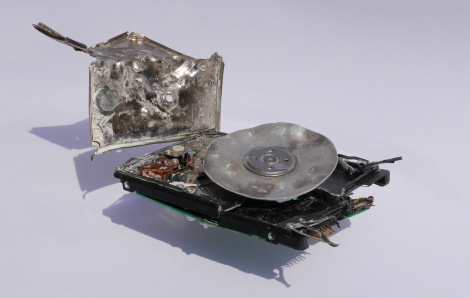On 1st March 2014, Marshall Islanders marked 60 years since the devastating US hydrogen bomb test (codenamed BRAVO) at Bikini Atoll in the North Pacific Ocean. A thousand times more powerful than the Hiroshima atomic bomb, BRAVO exposed thousands of Marshallese to radioactive fallout. Still off-limits to its displaced indigenous peoples (due to high levels of residual radiation), Bikini Atoll has in recent years been marketed as a ‘pristine’, idyllic destination for wealthy Western diving tourists, while its indigenous peoples (and those on other irradiated Marshall Islands) are still suffering serious long-term health problems (such as cancers, paralysis, and birth defects) as a result of nuclear contamination of their bodies and environments.
Rob Nixon has described radiation poisoning as a form of ‘slow violence’, a ‘delayed destruction that is dispersed across time and space’. In discussing the ‘long dyings’ that result ‘from war’s toxic aftermaths or climate change’, he notes that ‘the staggered and staggeringly discounted casualties, both human and ecological … are underrepresented in strategic planning as well as in human memory’ (1-2). Such dynamics are evident in the publicity surrounding the BRAVO bomb, the slow violence of which has been consistently downplayed by a US government anxious to project a narrative in which the Bikini Islanders willingly left their island ‘for the good of mankind’, with the health of those exposed to radiation putatively restored within months of the blast. In reality, Marshallese are still dying as a result of corporeal and environmental irradiation; many suffer additional health problems (such as diabetes) as a result of dependence on imported Western foods, and face the threat of further displacement due to rising sea levels (due to global warming). Further, it is estimated that radiation damage has rendered Bikini uninhabitable for at least 30,000 years, necessitating a potentially permanent severance of Indigenous connections to ancestral lands first settled in the Second Millennium BC. The magnitude of this geotemporal rupture is arguably best measured with reference to deep time rather than human generational frameworks.
Elizabeth DeLoughrey argues the ‘radiation we carry in our bodies’ is ‘invisible to narrative and to history’, partly due to ‘the naturalisation of nuclear radiation as solar energy by Atomic Energy Commission propaganda’ (it is notable in this context that Marshallese termed the day of the Bravo bomb ‘the day of two suns’, mistaking the blast for a sunrise), but also as a result of ‘the process of transference, diversion, and/or substitution made possible by metaphor’. This paper tests DeLoughrey’s hypothesis with reference to ‘History Project’, a performance poem (by Marshallese author Kathy Jetnil-Kijiner) focused on the slow violence attendant upon the BRAVO shot, and a project I have been running with Edinburgh College of Art students in which they have produced artworks inspired by the poem. Questions we have considered include: what might a graphic exploration of the ‘slow violence’ of nuclearisation in the Marshall Islands look like? How might dominant images of the Pacific as an environmental paradise be reconciled with the often unseen devastations of irradiation?



